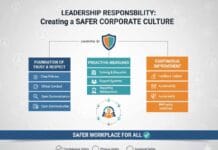In today’s evolving tech landscape, the Internet of Things (IoT) stands out as a game-changer for businesses across various industries seeking to drive innovation and efficiency. As the demand for IoT expertise grows, hiring the right developers has become a crucial task. It is essential for businesses to carefully evaluate the skills and knowledge of potential developers before bringing them on board. This article provides tips for assessing and selecting top IoT professionals.
Exploring the World of IoT Development
To hire IoT developers for your team, you must understand the fundamentals of IoT development. At its core, IoT involves connecting devices to the Internet to facilitate data exchange and control. Professionals in this field need to grasp both hardware and software aspects. Expertise in embedded systems, wireless communication, and data analysis is invaluable. Familiarity with IoT platforms further enhances their ability to create robust solutions.
Assessing Technical Skills
Proficiency in technical skills is crucial for effectively evaluating a developer’s capabilities. IoT development typically requires a strong grasp of programming languages such as C, C++, Python, or Java. Understanding protocols like MQTT, HTTP, and CoAP is also advantageous. Experience with cloud services is essential, as many IoT applications rely on cloud-based solutions. Evaluating candidates’ technical abilities through coding assessments or real-world project evaluations provides insights into their potential.
Evaluating Problem-Solving Abilities
Problem-solving skills are vital in IoT development, as developers often encounter challenges related to integration, scalability, and security. Assessing how candidates approach these issues can highlight their problem-solving abilities. Presenting hypothetical scenarios or discussing past project hurdles during interviews can reveal their analytical thinking and creativity. A developer’s ability to devise innovative solutions plays a key role in the success of IoT projects.
Fostering Collaboration and Communication
Successful project implementation relies on effective communication and teamwork among professionals in IoT projects, including hardware engineers and software developers. Team cohesion is essential, as developers need to convey information to various stakeholders and align with organizational goals. Drawing from past collaborative experiences and evaluating communication strategies during the hiring process helps identify candidates who can work seamlessly within a team.
Considering Knowledge in Security Measures
Security is a top priority in IoT development due to the vulnerabilities posed by numerous connected devices. Developers must prioritize implementing security protocols and best practices to safeguard data and devices. Understanding encryption techniques, authentication procedures, and secure coding methods is key. Assessing a candidate’s knowledge of security measures ensures that organizations can protect their solutions from potential threats.
Delving into Industry Expertise
Extensive industry experience can significantly impact a candidate’s ability to execute IoT projects. Developers who have worked in specific fields bring expertise that enhances project outcomes. Industry knowledge, whether related to healthcare, smart cities, or industrial automation, provides insights into unique challenges and opportunities. Reviewing a candidate’s past assignments and how they align with the company’s objectives can inform the hiring decision.
Evaluating Flexibility and Willingness to Learn
In the ever-changing world of technology, developers must be adaptable and open to embracing new trends and tools in IoT development. Their willingness to learn ensures they remain valuable to the organization in the long run and stay prepared for future changes in the IoT industry.
Aligning with Shared Values and Culture
Cultural alignment within an organization plays a critical role in fostering a positive work environment. IoT developers should resonate with the company’s core values and future goals. Assessing a candidate’s teamwork style, professional principles, and creative thinking can determine their impact on the overall organizational culture. Engaging in interviews and discussions focused on shared values helps evaluate compatibility.
Final Thoughts
Evaluating IoT developers requires a comprehensive strategy that integrates technical proficiency, problem-solving acumen, and effective communication skills while considering security concerns. Industry knowledge, adaptability, and alignment with company culture also play vital roles in the evaluation process. Thoroughly assessing these elements empowers businesses to make informed recruitment decisions that pave the way for successful IoT initiatives, fostering creativity and growth.





